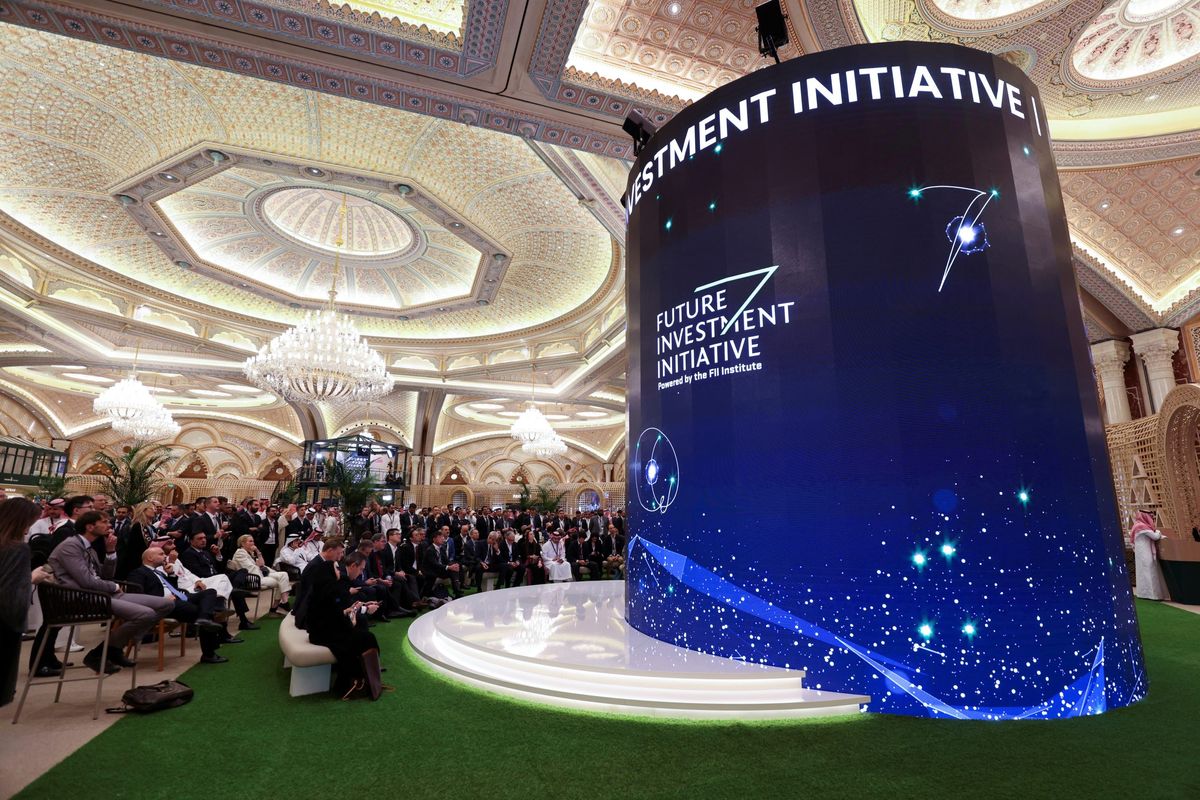Why are Wall Street execs headed to Saudi Arabia this week?

A few minutes every morning is all you need.
Stay up to date on the world's Headlines and Human Stories. It's fun, it's factual, it's fluff-free.
After Crown Prince Mohammed bin Salman (MBS) announced his plan to open the country to foreign investors and become a supply chain hub, Wall Street is looking to Saudi Arabia more often for investment opportunities – despite US-Saudi political tensions, which increased recently after OPEC+’s decision to cut oil production.
Starting Tuesday, global leaders, bankers and inventors were headed to Saudi Arabia for the flagship 6th Future Investment Initiative (FII), also known as “Davos in the Desert.” The conference lasts in Riyadh from October 25-27. Many Wall Street bigwigs were among the attendees, including JPMorgan’s CEO Jamie Dimon, who said pulling out of the conference in 2018 following the disappearance of journalist Jamal Khashoggi “achieved nothing.”
This is an opportune time for MBS to showcase his future economic vision because, while the rest of the world is experiencing inflation, surging oil prices and the fear of recession, Saudi Arabia’s economy has become the fastest-growing within the G20. S&P expects the country to have around 8% GDP growth in 2022.
Key comments:
“The savvy of Wall Street know their history well and know the difference between the short-term and political versus the long-term and strategic,” said Talal Malik, CEO at Saudi consultancy at Alpha1Strategy. He added “With this kind of liquidity, it makes sense for US investment firms to ramp up their attendance.”
“The government cannot afford to drive economic development indefinitely but for the time being there is no real alternative as domestic businesses are unfit to play that role, and FDI continues to disappoint,” said Neil Quilliam, associate fellow at Chatham House.
“For the most part, I do not see US companies actively avoiding Saudi Arabia due to recent political tensions,” said Adel Hamaizia, managing director at Highbridge Advisory and a visiting fellow at Harvard University.
“The most important thing is the geopolitics around Russia and Ukraine, America and China, relationships of the western world,” said Jamie Dimon, CEO of JPMorgan Chase & Co. at the event in Riyadh. He added “That to me would be far more concerning than whether there’s a mild or slightly severe recession.”




Comments ()